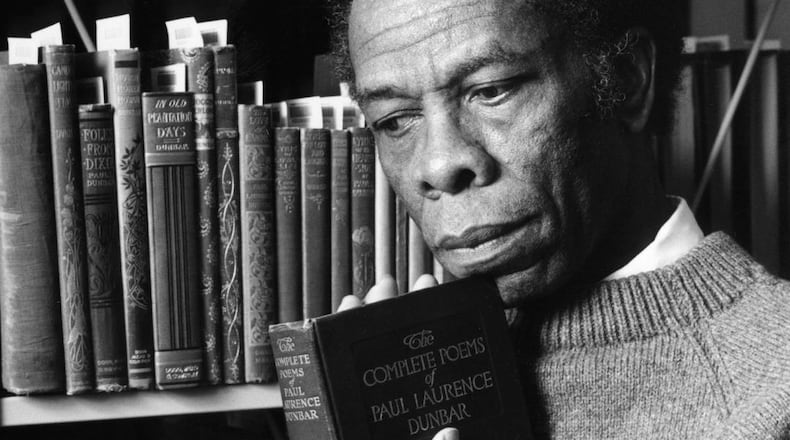Collaborating with composer Adolphus Hailstork, Martin centered his titular text, “Pity These Ashes,” on a young girl assessing the destruction of the prosperous Black district.
As long as we are given to strive in this land
We are left with his ashes,
We are left with his dust.
Oh mother of sorrow,
Oh father of work,
Do not let these ashes be the end of my days.
Oh father of sorrow,
Mother of work,
Do not let this dust be the anger of my memories.
“When I received the commission, I was amazed to see that there was very little information – the entire event had been effectively erased,” said Martin, former longtime University of Dayton English professor. “Nothing of the town seemed to be left but ashes and dust. So, this became the title. I was left with constructing a text from my emotions as I rummaged through the remains of a terrible riot. I heard in my memory echoes of Emmett Till and his encounter in the South that resulted in his death. What happened to strike the incendiary match no one has the truth of the matter, but the result was the complete eradication of an independent and self-sufficient community.”
Credit: CONTRIBUTED
Credit: CONTRIBUTED
Written for mezzo-soprano and chamber orchestra, the emotional, soaring aria will be sung by rising star J’Nai Bridges, whose numerous credits include her acclaimed debut at The Metropolitan Opera as Nefertiti in Philip Glass’ opera “Akhnaten” and her debut with Washington National Opera as Dalila in “Samson et Dalila.” She’s also been called the “Beyoncé of Opera” by BET. To hear an excerpt of “Pity These Ashes” visit https://thegreenespace.org/event/pity-these-ashes-tulsa-100th-anniversary/
“Tulsa 1921-2021” features additional music by Black composers Jessie Montgomery (“Starburst”), Alice Coltrane (“Prema” for Harp and Strings, arranged by Tom Cunningham of Urban Playground Orchestra) and Trevor Weston (“The People Could Fly” for Violin Solo, Narrator and Strings, based upon an African-American folktale by Virginia Hamilton).
Along with Bridges, notable artists include music director/conductor Amadi Azikiwe, host and performer Terrance McKnight, violinist Lady Jess, and harpist Ashley Jackson. The orchestra will be comprised of members of the Harlem Chamber Players. Featured dancers will stem from Harlem School of the Arts.
As the virtual event approaches, Martin remains mystified by the cause of such horrific, tragic violence 100 years ago. Nonetheless, he hopes the power of art can soothe, heal and provide some morsel of clarity for future generations.
“Was it really envy or jealousy?” he wondered. “No one knows the truth or has revealed the truth. And for a century, the surviving Black citizens chose not to speak about it in their homes, churches, their community or the larger city of Tulsa. We are left with creative invention which is sometimes called speculation. But we do know that many individuals died as a result of this particular incident, and that the White community chose to suppress, cover up, ignore, or to pay little or no attention to. I am looking forward to ‘Pity These Ashes, Tulsa 1921.’ I hope it is being sung long after I am not present to hear it delivered.”
To RSVP or for additional information, visit harlemchamberplayers.org.
Contact this contributing writer at rflorence2@gmail.com.
About the Author

